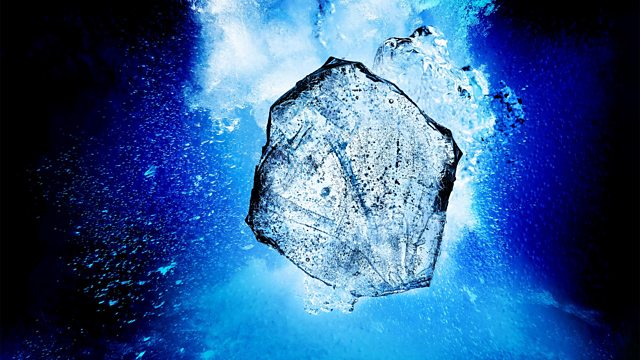Science on ice
Roland Pease explores different forms of frozen water, from new material produced in the University College London labs to the coldest ice observed in the universe.
Pull on an extra layer and stay toasty whilst Science in Action braces for a deep freeze. Whilst we know plenty about the ice on the Earth鈥檚 poles, Roland is on a chilling journey to see what can be found in deep space.
Professor Christoph Salzmann and Professor Andrea Sella at University College London have produced a new phase of ice. Roland heads to the laboratory to see how the usual crystalline ice, found in ice cubes and icebergs, can be broken down and arranged into a new structure.
The James Webb Space Telescope has detected the coldest ices to date, deep within a molecular cloud in outer space. Professor Melissa McClure describes how these clouds harbour a variety of different molecules potentially capable of forming the basic building blocks for life.
From the edges of the universe to something a little closer to home, Professor Geoff Collins and colleagues have discovered odd tectonic plate activity on icy Europa, one of Jupiter鈥檚 moons.
And a theory for the origin of life that may surprise you. Professor Philipp Holliger is trying to uncover whether ice played a role in our creation, acting as a medium capable of concentrating molecules and promoting the chemical reactions required for the generation of RNA, essential for cell protein production.
Presenter: Roland Pease
Producer: Harrison Lewis
Assistant Producer: Sophie Ormiston
(Photo: Chunk of ice. Credit: Getty Images)
Last on
More episodes
Previous
Broadcasts
- Thu 2 Feb 2023 20:32GMT大象传媒 World Service Online, Americas and the Caribbean, UK DAB/Freeview & Europe and the Middle East only
- Thu 2 Feb 2023 21:32GMT大象传媒 World Service Australasia, South Asia, News Internet & East Asia only
- Fri 3 Feb 2023 04:32GMT大象传媒 World Service Australasia, Americas and the Caribbean, South Asia & East Asia only
- Fri 3 Feb 2023 13:32GMT大象传媒 World Service
- Fri 3 Feb 2023 18:32GMT大象传媒 World Service East and Southern Africa & West and Central Africa only
- Sat 4 Feb 2023 17:32GMT大象传媒 World Service News Internet
Podcast
-
![]()
Science In Action
The 大象传媒 brings you all the week's science news.


